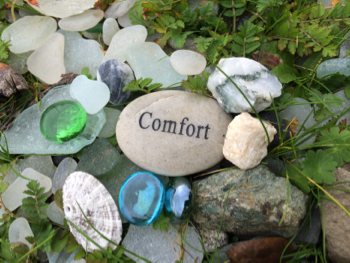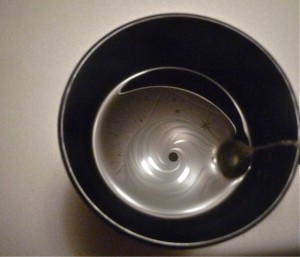Cell Phone Addiction. What Happens to Our Dreams?

We dream while we are awake, same as we do asleep, just as stars are in sky in the day, hidden by light. Thoughts and images of the outer mind, like light, distract us from our inner dreaming, in which lives: inspiration, insight, intuition, aspiration, what we are drawn to in our deepest selves, our guidance, what we are called to bring forth. These interior experiences give our lives meaning and shape our lives. They truly integrate us with the greater world; they connect us.
Meditative consciousness, deep feeling, unity with all life, our values . . . All pulse and breathe behind the scenes. When we are inundated from the outside we are unaware of them. They are inward aspects of our selves.
Our interiors anchor the pulse by which we know our own essence and realize our real selves. They do not thrive on the surface, in the noise. They arise TO the surface, often silently, often gently, through a stray image, an impulse, a feeling, a longing, a need—perhaps even through our discontent. When we sit with  discontent, feel into it, we find ways to hold ourselves accountable for meaning in our lives. We find ways to inspire ourselves by discovering what matters to us truly, and feel our way, if blindly, into giving things that matter shape and form on our outsides, expression, perhaps even life direction.
discontent, feel into it, we find ways to hold ourselves accountable for meaning in our lives. We find ways to inspire ourselves by discovering what matters to us truly, and feel our way, if blindly, into giving things that matter shape and form on our outsides, expression, perhaps even life direction.
How do you think cell phone addiction and Facebook addiction impact our ability to experience and breathe with these subtle and essential states, pathways, impulses, insights, and realizations?
What do you think happens when we are jolted at random by little alarms throughout the day, something beeping, buzzing, vibrating, demanding our attention regardless of our rhythms, focus of attention, productivity and flow?
What happens to our interior rhythms?
What happens to our access to ourselves?
What happens to the waves of our inner dreaming and what now washes up on the shores of our awareness?
What happens when sensationalistic fear-based news constantly demands action, time, money, feeling and attention without respect to what we have to give, and we’re not even sure all of it true?
Certainly we have a part in the causes of the world. If these causes are not our own—or even if they ARE our own—what happens when they are louder than our own inspiration and meaning, and begin to take the place of our inner worlds and dreaming?
We also may be jolted, alarmed, drawn in, called forth and asked to respond to those who text when they are out of balance, when they feel hurtful or want to bully others or damage relationships with gossip, when they boast, when they encounter difficult moments without first settling in to the deeper source of their essence or reaching into their hearts but instead reach for their phones—their need for love calling them to do so, but they broadcast the trivia of their egos and the toxins of reactive states instead of mutually connecting, for they have forgotten that they impact you.
What happens when we forget the breadth of our feelings, our bodies, and our breath and take what other people think as the measure of who we are?
If we begin to identify with our reactions to the superficial group mind, rather than taking meaning and purpose from our inner values, personal beliefs, integrity, sense of honor, chosen and cultivated values, and what we are drawn to love, the opinions and reactions of multiple people begin to displace Presence and self awareness. What happens to conscience?
When contact with others is virtual, how do you come to understand real results?
What happens to your ability to perceive your environment, to partake in the beauty of nature, and to experience joy without reason?
The trend is to make our inner world, our dreams and the people right in front of us less important than whatever comes to us electronically. What comes of this?
It starts because initially, those who can reach us are the ones who are most important to us. Then the related behaviors become habitual.
What results from constantly favoring the immediacy of an electronic contact over the people and environment around us?
If fast-food-style connection substitutes for realtime relating, and we lose touch with our depths, what happens to our capacity for soul-to-soul contact?
What begins as more easily connecting can create a riveting preference when the immediacy of it and the habits it creates make it mechanical, compelling, and often irrelevant or even destructive to what we value more.
Ironically, the more desperately one turns to multiple contacts through electronics, seeking connection, the more disconnected one often becomes.
It takes a sense of self to feel connected and allow love in.
Someone sent me this quote after this blog was published:
Albert Einstein:
“I fear the day when the technology overlaps with our humanity.
The world will only have a generation of idiots.”


 rejecting them. Intentionally breathe tender compassion and love into those places, feeling them, yet gradually filling the body and heart areas they occupy with kindness and gentleness.
rejecting them. Intentionally breathe tender compassion and love into those places, feeling them, yet gradually filling the body and heart areas they occupy with kindness and gentleness.























